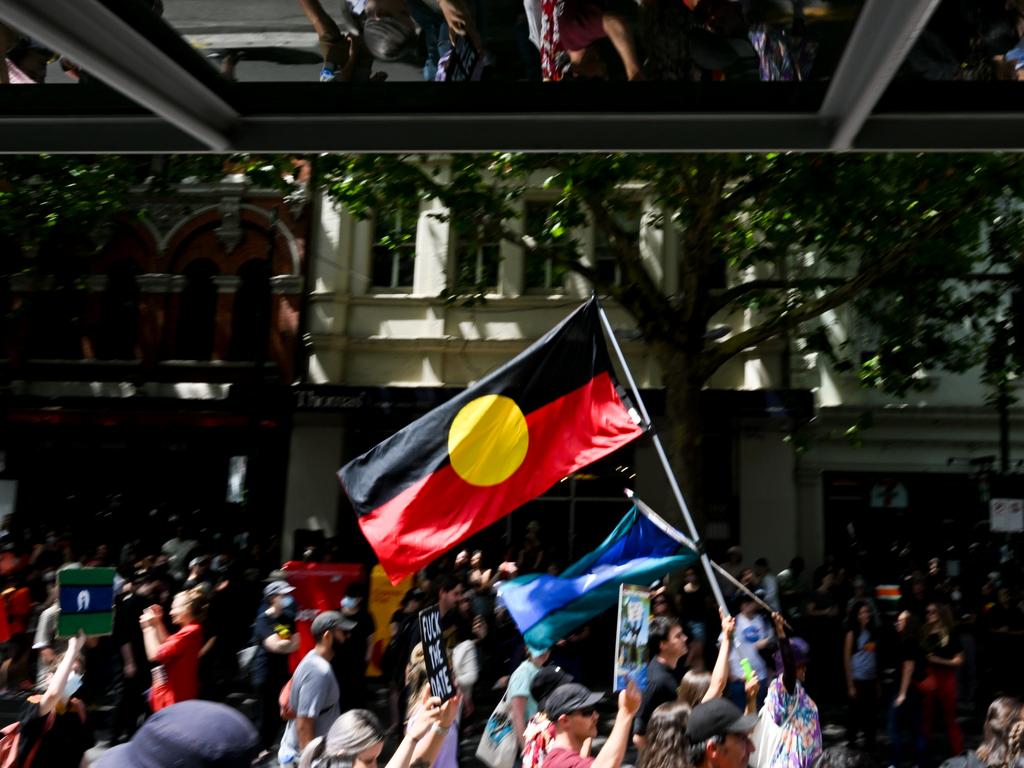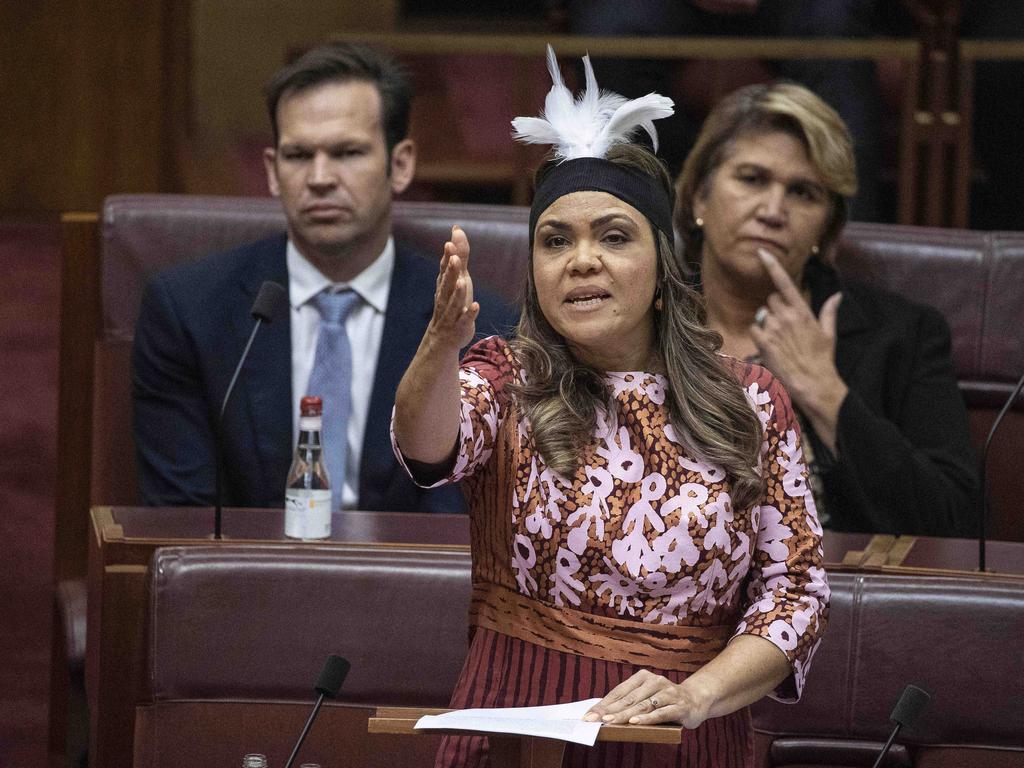
“The Solicitor-General’s views are very clear in support for this change – that it’s legally sound,” Albanese told Sky News on Sunday. “And through the process we will be … he will, I’m sure, take the opportunity through … Attorney-General [Mark Dreyfus KC] to make that position clear.”
To which one might say: isn’t that just peachy? There are several reasons to celebrate, not the least of which is that Albanese finally realised it would be a good idea to consult the second law officer – you know, the primary counsel for the commonwealth – about changing the constitution. He had not done so as of January, despite having announced the proposed referendum wording nearly six months before.
But the proposal has cleared the Donaghue desk now, and that is all that matters, right? Wrong. Let’s analyse the Albo-lingo first, beginning with the phrase “legally sound”. Do not conflate that with logically sound. In the context of the referendum proposal, it simply means the proposed amendment, if carried, would be lawful.
To put it tactfully, that is a good start. To put it bluntly, that is of little reassurance, given a successful amendment can still be legally sound even if it results in constitutional chaos and protracted litigation. In the case of the voice, critics cite a worst-case possibility of an activist group hellbent on co-governance by stymieing the executive to extract concessions. Think of it as death by enforced consultation.
Pro-voice campaigners in turn reject these claims. Understandably the public is confused and wary. Albanese has exacerbated this uncertainty by not funding a No campaign and refusing to hold a constitutional convention. Add to that Dreyfus’s refusal to release the Solicitor-General’s advice, and we are left with the perception of an equivocating and duplicitous government that treats constituents with contempt.
Albanese’s latest comments do nothing to dispel that perception. Contrary to reports, he has not agreed to release Donaghue’s advice. He has merely undertaken that the solicitor-general will publicly confirm the lawfulness of the proposal. As for the potential constitutional ramifications of the voice, Albanese has conveniently ensured any warnings can remain under the cloak of legal privilege.
To be clear, there is no suggestion that Donaghue has done anything other than fulfil the requirements of his role. He has properly observed the principles that ensure his position remains outside politics. Should his office become compromised, it will not be through his doing but rather that of the prime minister and especially the Attorney-General.
When in Opposition, Dreyfus stridently denounced the Coalition, claiming it had “attacked” the rule of law during its nine years in power. Campaigning last year, he promised that Labor would, if elected, “undergo repair work from week one”. But far from doing that, he has, through his remarkable selectivity, left himself open to accusations of political expediency.
As has been well documented, Dreyfus last year cheerfully released legal advice from Donaghue concerning former prime minister Scott Morrison and the five ministerial portfolios he secretly held. No law was broken in that respect, but nonetheless Donaghue found Morrison’s actions “fundamentally undermined” the “principles of responsible government”.
So how did Dreyfus try to explain his refusal to part with the advice concerning the voice?
“It would be inconsistent with longstanding practice that successive governments, including the government for the last nine years … to release solicitor-general advice,” he told 3AW radio host Neil Mitchell last month. Attempting to differentiate the two cases when the discrepancy was pointed out to him, his rationale was comically inept. “It’s a very, very, very different situation,” he said.
We get it, Attorney-General. You waived legal privilege so that you could triumphantly shame the former government and its leader for political advantage. Whereas in this case the release of such advice would, in all likelihood, reveal the solicitor-general’s take on the ramifications of the voice to be very, very, very different from what you and the prime minister are telling the public. Would I be right?
It gets even better. As the Sydney Morning Herald reported last month, the government permitted members of the referendum working group to read Donoghue’s advice, albeit under strictly controlled conditions. To summarise, it is okay to provide this advice to activists, but it would be dangerous to release it to the electorate.
The hypocrisy does not end there. Not only does Dreyfus have priors for waiving privilege when it suits him: he also demands others do the same to suit his opportunism. For example, in 2017, during the dual citizenship imbroglio, then Coalition frontbencher Josh Frydenberg was accused of holding Hungarian citizenship by descent and thus ineligible to sit in parliament. This case was particularly sensitive given his mother had narrowly survived the Holocaust by escaping her birthplace and arriving stateless in Australia as a child via a refugee camp in 1950.
Frydenberg cited legal advice from domestic and international lawyers refuting the accusations of dual citizenship (the Federal Court later ruled in his favour). Nonetheless, Dreyfus, then shadow Attorney-General, insisted this advice be made public.
“I’m very much hoping that he can demonstrate, by just giving some of the material facts, or releasing the legal advice, that he’s got nothing to be concerned about,” he told ABC Insiders. To Labor’s credit, Dreyfus’s colleagues – including current ministers Tanya Plibersek and Ed Husic - publicly repudiated this move. “My view is the Dreyfus approach is just political tactics and not cognisant of the wider political, historical and ethical issues,” said then Labor backbencher Michael Danby.
Not much has changed. If Dreyfus will not release the Solicitor-General’s advice, then Albanese must direct the Attorney-General to do so in full. Allow me to use your favourite phrase in respect to the voice, Prime Minister. If not now, when?








If nothing else, the shenanigans over the proposed Indigenous voice to parliament have provided a fascinating case study of how to, or rather how not to, make the case for constitutional change. The latest example is Prime Minister Anthony Albanese’s cheesy assurance that Solicitor-General Dr Stephen Donaghue KC, has (apparently) placed his tickety-boo stamp on the government’s proposal.